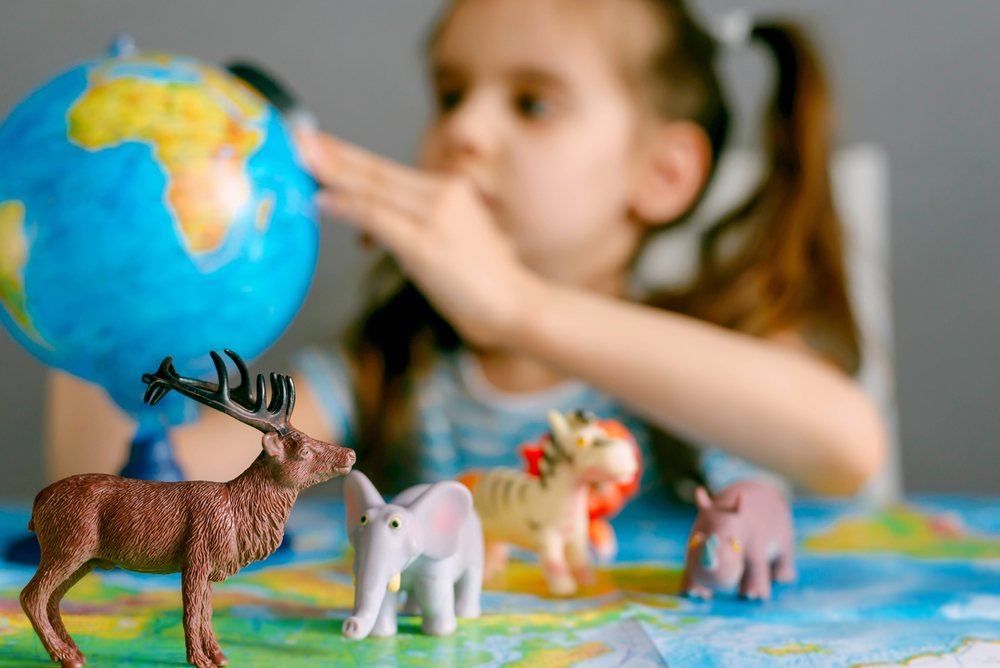Understanding seasons Geography Worksheets for Ages 3-6
5 filtered results
-
From - To
Unlock the magic of nature with our "Understanding Seasons" geography worksheets tailored for young minds aged 3-6. These engaging and colorful printables at Kids Academy help preschoolers and kindergarteners grasp the changes in seasons and weather. Children explore the year's seasonal cycle, matching activities, picture-based questions, and simple puzzles. Perfect for home or classroom, these worksheets nurture curiosity while reinforcing foundational geography concepts through play. Encourage your little ones to discover the wonders of spring, summer, fall, and winter in a fun, educational way. Equip them with essential skills and knowledge to understand our world's seasonal rhythm!
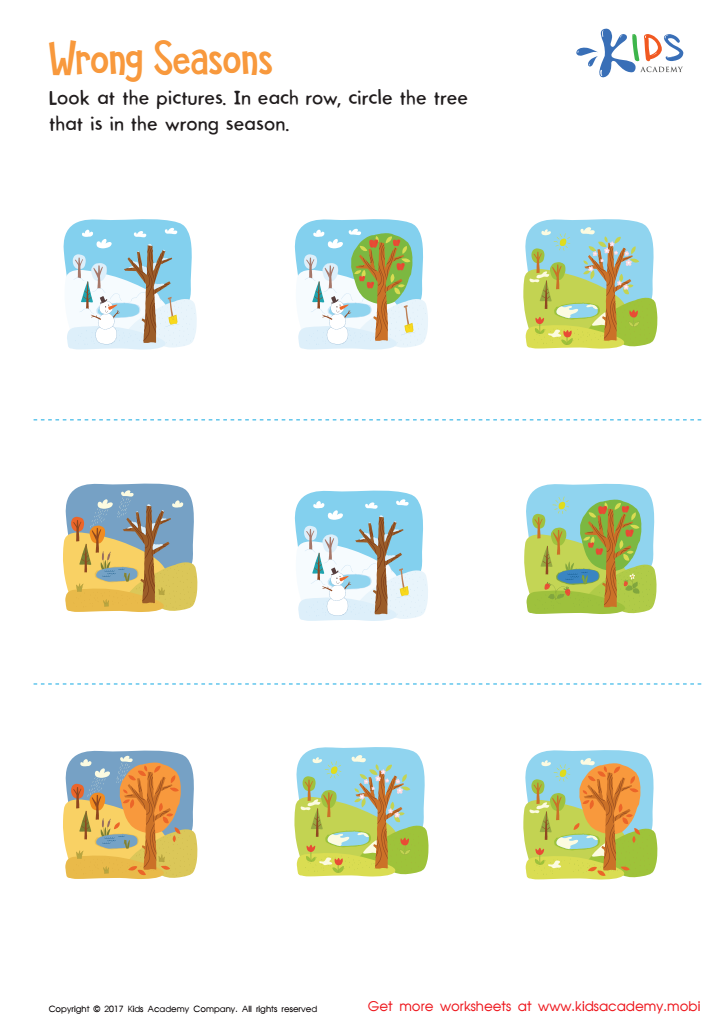

Wrong Seasons Worksheet
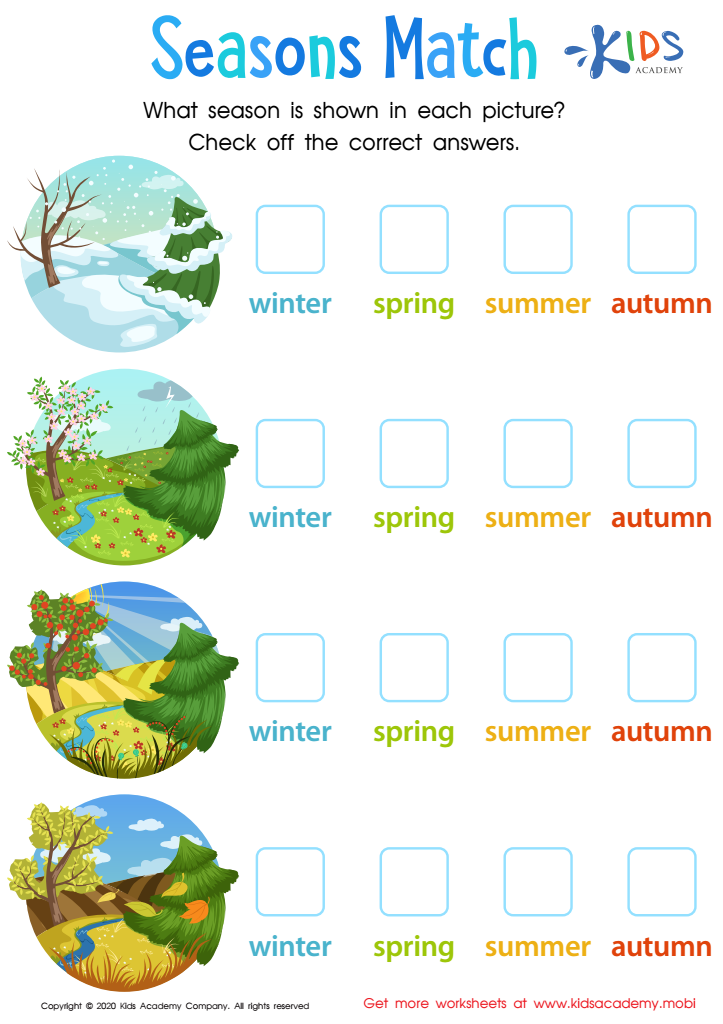

Seasons Match Worksheet
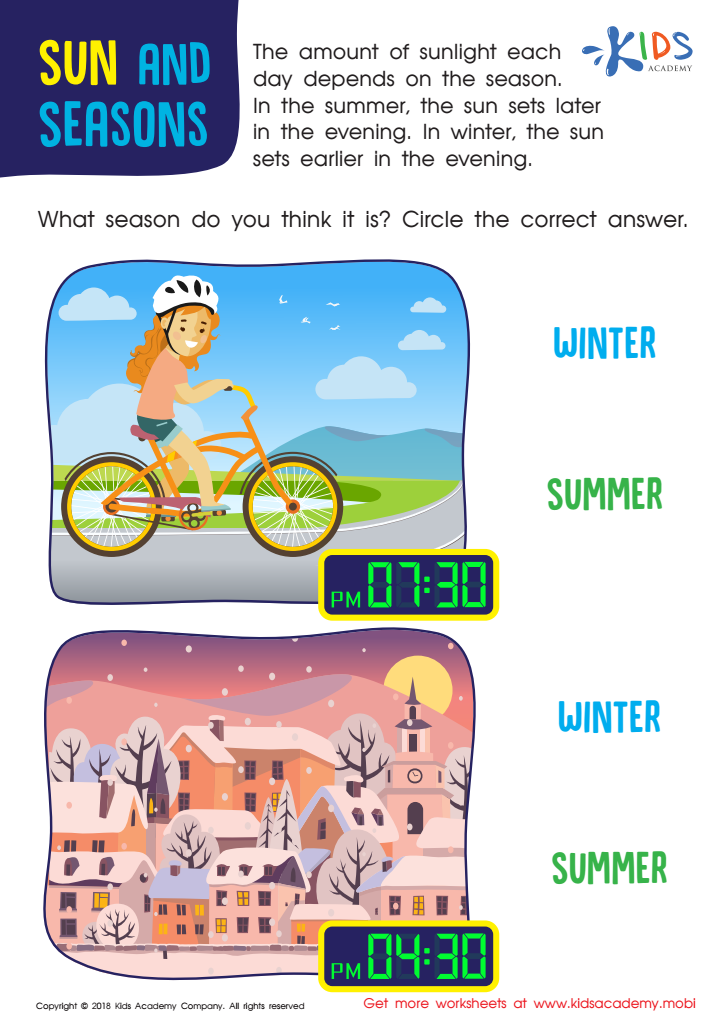

Sun and Seasons Worksheet
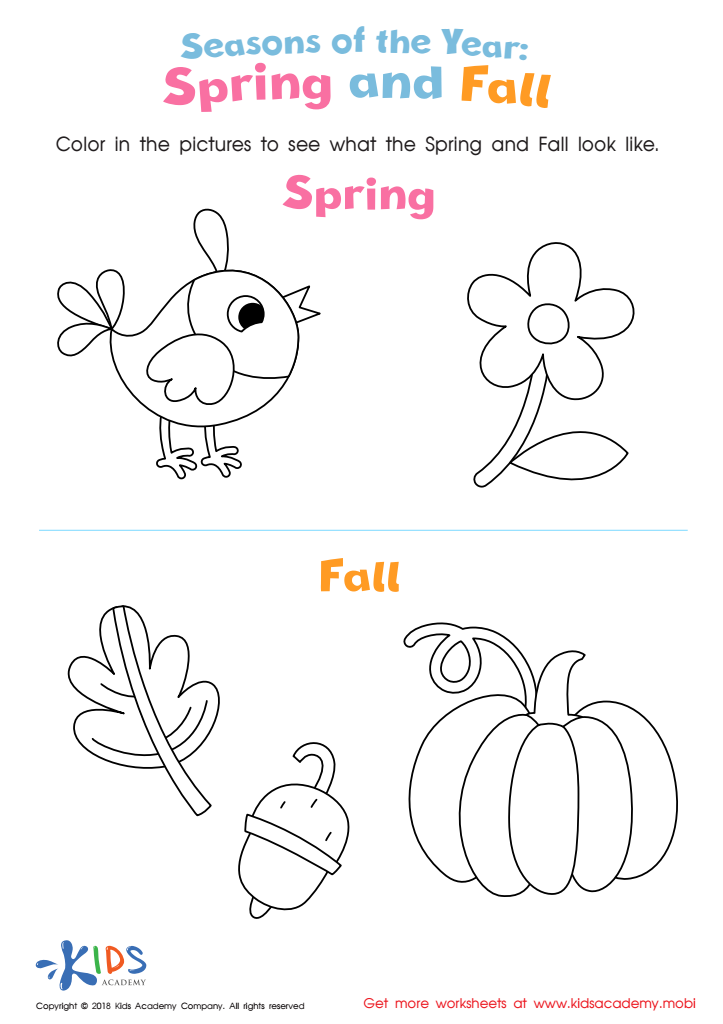

Spring and Fall Worksheet
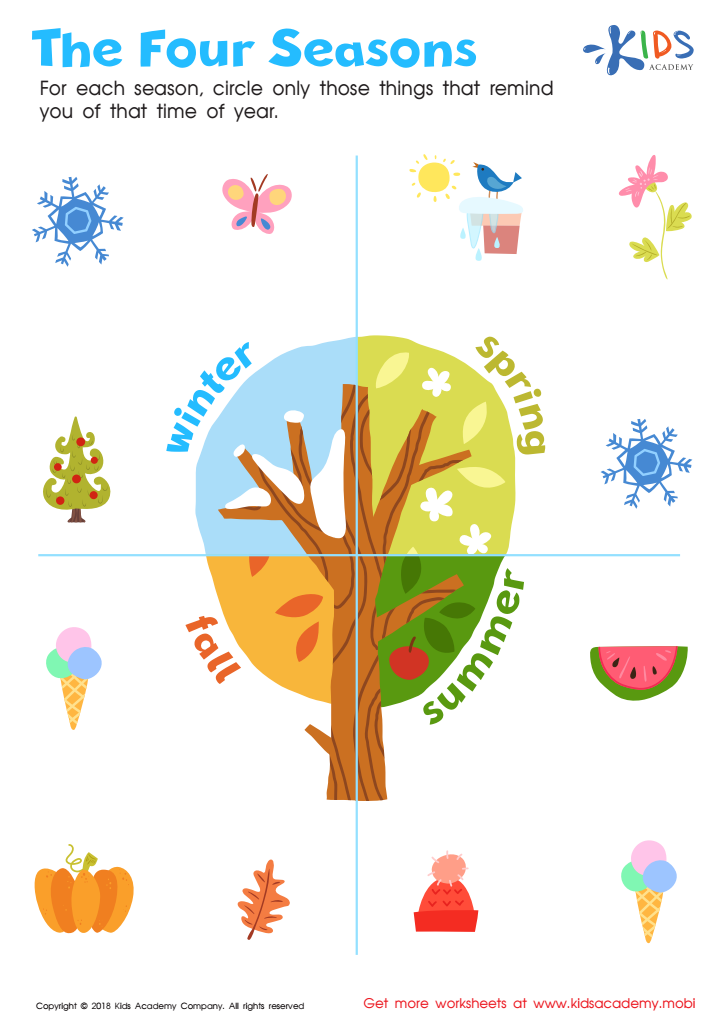

The Four Seasons Worksheet
Understanding seasons and geography is crucial for young children aged 3-6 as it nurtures their cognitive and social-emotional development. Learning about seasons helps children grasp time concepts, such as months and changes across the year. Recognizing seasonal patterns also ties into understanding the world around them, including weather, clothing, activities, and nature.
For parents and teachers, discussing geography fosters spatial awareness and curiosity about different environments. Through stories, visuals, and hands-on activities, children can learn about diverse climates, regions, and cultures. This early exposure broadens their perspective, nurturing a sense of global citizenship and empathy.
Seasons offer rich, experiential learning: in autumn, kids observe leaves changing; in winter, they discover snow. Such experiences make learning interactive and memorable. Nature walks and creative projects tied to seasons spark curiosity and engagement. Additionally, conversations about why days get shorter in winter or flowers bloom in spring build foundational science knowledge and critical thinking skills.
Incorporating geography and seasons into early education creates a holistic learning experience. It addresses scientific literacy, enhances sensory experiences, and grounds children in their immediate and broader environment. By understanding these principles, children develop lifelong skills and an innate appreciation for the planet they inhabit.

 Assign to My Students
Assign to My Students






